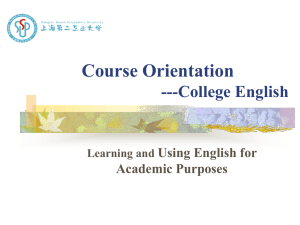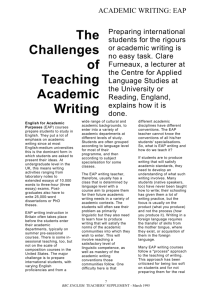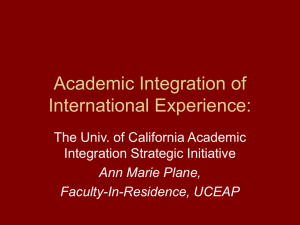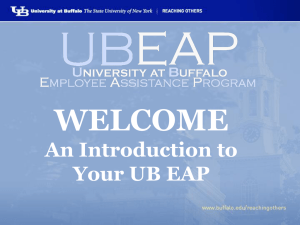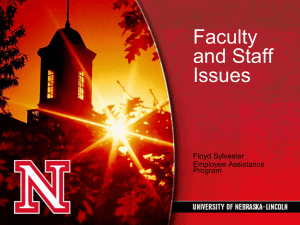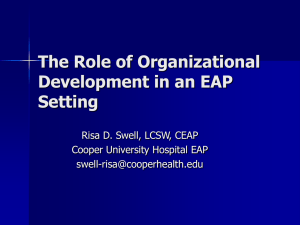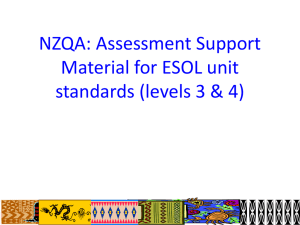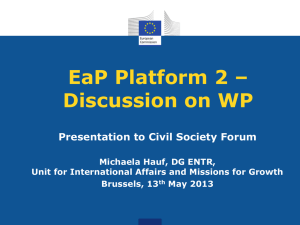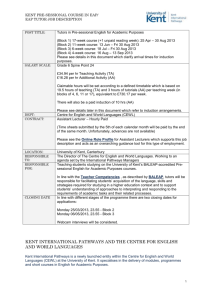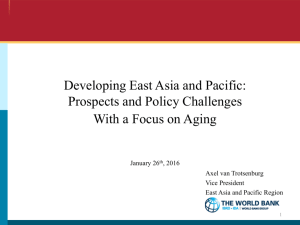Balancing linguistic and content teaching
advertisement
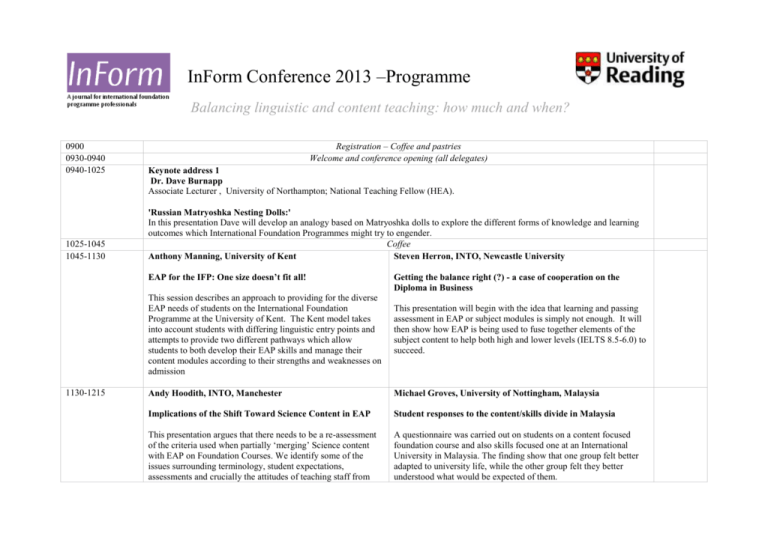
InForm Conference 2013 –Programme Balancing linguistic and content teaching: how much and when? 0900 0930-0940 0940-1025 1025-1045 1045-1130 Registration – Coffee and pastries Welcome and conference opening (all delegates) Keynote address 1 Dr. Dave Burnapp Associate Lecturer , University of Northampton; National Teaching Fellow (HEA). 'Russian Matryoshka Nesting Dolls:' In this presentation Dave will develop an analogy based on Matryoshka dolls to explore the different forms of knowledge and learning outcomes which International Foundation Programmes might try to engender. Coffee Anthony Manning, University of Kent Steven Herron, INTO, Newcastle University EAP for the IFP: One size doesn’t fit all! This session describes an approach to providing for the diverse EAP needs of students on the International Foundation Programme at the University of Kent. The Kent model takes into account students with differing linguistic entry points and attempts to provide two different pathways which allow students to both develop their EAP skills and manage their content modules according to their strengths and weaknesses on admission 1130-1215 Getting the balance right (?) - a case of cooperation on the Diploma in Business This presentation will begin with the idea that learning and passing assessment in EAP or subject modules is simply not enough. It will then show how EAP is being used to fuse together elements of the subject content to help both high and lower levels (IELTS 8.5-6.0) to succeed. Andy Hoodith, INTO, Manchester Michael Groves, University of Nottingham, Malaysia Implications of the Shift Toward Science Content in EAP Student responses to the content/skills divide in Malaysia This presentation argues that there needs to be a re-assessment of the criteria used when partially ‘merging’ Science content with EAP on Foundation Courses. We identify some of the issues surrounding terminology, student expectations, assessments and crucially the attitudes of teaching staff from A questionnaire was carried out on students on a content focused foundation course and also skills focused one at an International University in Malaysia. The finding show that one group felt better adapted to university life, while the other group felt they better understood what would be expected of them. both areas. 1215-1315 1315-1400 Lunch Keynote address 2 Professor Elspeth Jones Emerita Professor of the Internationalisation of Higher Education and international education consultant IFP and the transition to UK academic culture: Bridge, ferry or ford? Elspeth will consider how the structure and content of international foundation programmes can support a diverse range of students as they make the transition to university study. 1400-1445 1445-1530 Jane Ward, University of Reading Alison Leslie, University of Leeds. Listening training to aid lecture uptake: part of a 3 pronged attack by linguistic and content trainers Study Skills in English: does it do what it says on the tin? Research suggests that during lectures a considerable amount of information is not decoded by low- to mid-level listeners, a worrying notion considering the amount of information delivered to students via lectures. This presentation suggests a three-pronged attack in dealing with this problem involving both linguistic and content trainers. Chris Walklett, University of Essex Thinking Back...Looking Forward... An insight into our end of year IFP Event We believe that we have stumbled upon a successful formula for concluding our IFP. The presenter has been observing (and filming) the progress of this ‘Event’ for the last few years. We believe it’s too good to keep to ourselves and would like to share it with you. 1530-1600 One challenge for EAP teachers is equipping students with skills to function in diverse academic communities by contextualising language within content which engages them to think critically. This presentation considers how this is approached on the Study Skills in English module of Leeds University's International Foundation Year programme. Jonathan Dunn, The University of Brighton’s International College The Argument for Teaching Skills and Content Separately This presentation proposes that skills should be taught separately from language and content, because this separation gives teachers and students the freedom to be creative and to make mistakes without getting entangled in content. Arguably teaching skills and content in the same class is too much for students and teachers. It is important that students' needs are addressed and the most pressing need for many students is basic study skills. Tea and Networking - Conference close
